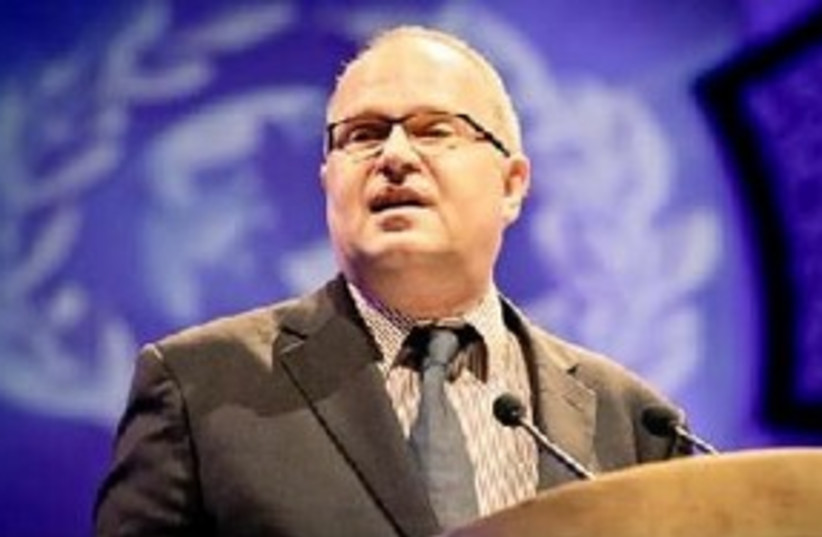A loud and outspoken minority of extremist Israelis have raised concern among Christian evangelicals that their upcoming Feast of Tabernacles events on Sukkot could be held under protest.
International Christian Embassy President Juergen Buehler said on a webinar Thursday that following two incidents in Jerusalem where Christians were spat on and shouted at, anti-Christian sentiment is growing in Israel.
"This is growing in the land," he said on an ICEJ recorded webinar. "I never witnessed such hatred here in Israel. I understand that it is by a minority or fringe [group] in Israel, but I am concerned it could have an impact on the Feast [of Tabernacles], and that is something that has raised my concern."
Protests against Christian missionaries
In May, hundreds of religious Jews, including Jerusalem Deputy Mayor Aryeh King, protested near the Western Wall, shouting "Missionaries go home," while the Christian visitors attempted to celebrate Pentecost and pray for peace in Jerusalem.
The following month, dozens of ultra-Orthodox Jews rioted outside the Pavilion, where a Christian concert occurred. Attendees were harassed by the protesters, who blew loud toy horns and whistled in their ears, shouting slurs at the Christians who attempted to enter the event.

Buehler was at both events.
In addition, there have been attacks on Christian gravestones, graffiti scribbled largely across a Christian monastery, and a statue of Jesus toppled and destroyed in a Christian church.
"I just hope and pray this will not damage Jewish-Christian relations," Buehler said.
The webinar was aired with the title, "Are Israel-Christian Relations in Crisis?" after a series of media reports, including those written by The Jerusalem Post, highlighted growing tensions.
Although unrelated to the violent incidents on the ground, ICEJ and other large Christian groups have also been experiencing challenges getting clergy and work visas for their permanent staff since the COVID-19 pandemic, making it difficult to run their operations.
ICEJ Vice President and Senior Spokesperson David Parsons told the Post last month that the challenge had left him and other evangelical Christian leaders feeling like the Interior Ministry was "squeezing us out of the country."
But on the webinar, Parsons and Buehler sought to clarify that their concerns stemmed more from challenging bureaucracy than a fear that the Netanyahu administration was against evangelicals. They blamed the pandemic and five elections in three years for why the situation has gotten as out of hand as it has.
"Christians are not the super, top priority of any government; they have more pressing issues," Buehler said, noting that lower-level bureaucrats who may have misunderstood ICEJ's work were charged with dealing with their situation as leaders rotated.
"Lower-level bureaucrats took over the reign, and I guess they suspected everyone here whose evangelical might be a missionary," Buehler said. "We are a strange animal. Whatever we do to bless Israel, our motivation springs from the Bible. It may be very hard for some at the Ministry of Interior to figure out what these organizations are."
According to Parsons and Buehler, the good news is that the situation has been dealt with since going to the press in August. Parsons said ICEJ spoke to the Foreign and Tourism ministries and has a meeting next week with the Interior Ministry, where they hope to find a solution.
"This is not about Netanyahu's government," Parsons stressed. "We have been facing the situation for about three years. The government is not the root of the problem, but it will be the solution in the coming days."
Also on the call was Josh Reinstein, the Jewish director of the Israel Allies Foundation, which builds bridges between Israel and parliaments through faith. His team was instrumental in opening the Papua New Guinea embassy in Jerusalem this week.
"We subscribe fully to the teachings of the Bible," Papua New Guinea Prime Minister James Marape said in his speech to mark the embassy's opening.
Reinstein said, "Christians, not countries, are standing with Israel." He added that he believed the two incidents Buehler experienced were isolated and the only ones. However, he admitted that the situation is "something we have to keep an eye on."
Reinstein highlighted how President Isaac Herzog condemned those and other anti-Christian events and said that Christian-Israel relations are stronger than ever.
ICEJ will host around 5,000 Christians worldwide at its Feast of Tabernacles events in October. During the several-day celebration, the embassy will host a night to honor Israel in the presence of top Israeli parliamentarians and ministers.
The following month, Reinstein will hold his Israel Allies Foundation Chairman's Conference, gathering the heads of his caucuses worldwide. He said on the webinar that there would be representation from 25 nations.
Next week, a new Christian Allies Caucus is slated to open in Moldova.
"In spite of the turmoil you see now, the total sum of it is that we are at an amazing point in history," Buehler added. "Jews and Christians are working together like never before."
